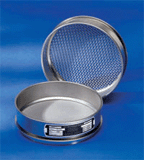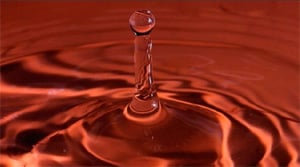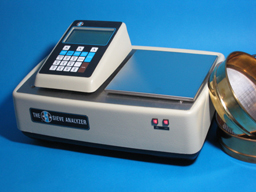Loss On Drying Moisture Analysis and Other Moisture Mysteries II Vapor Pressure
Posted by Art Gatenby on Apr 30, 2020 3:31:57 PM
Topics: Evaporation, Moisture Analysis, Moisture Testing, Loss-On-Drying
Loss-On-Drying Moisture Analysis and Other Moisture Mysteries Part 1
Posted by Art Gatenby on Apr 21, 2020 3:52:00 PM
One quiet night, I was musing over moisture analysis and how easy it is to do using loss-on drying. Little did I know what was in store.
Topics: Evaporation, Moisture Analysis, Moisture Testing, Loss-On-Drying, Moisture, moisture balance, moisture content
Do You Use Epoxies, Adhesives, Resins or Coatings?
Posted by Amanda Ranowsky on Jan 6, 2020 8:00:00 AM
Have you ever mixed up a batch of epoxy glue and, just before you finished the job, of course, had the mix unexpectedly turn into solid concrete? If you have, you experienced the effect of gel time. This term is a common measurement for products that thicken, cure, gel or harden when mixed. Product such as epoxies, adhesives, resins and coatings all use gel time measurements.
Read MoreTopics: Viscometers, Viscosity, gel time
We get the same two questions almost every week about the CSC Bostwick Consistometer:
1) What angle do I use to set it up?
2) How do I level the Consistometer?
Principle of Operation
The principle of the CSC Bostwick Consistometer is based on the slump cone. In this procedure, a cone is filled with the material to be tested. It is then set on a level surface with the open area facing downward. The cone is pulled away and after a fixed time, the amount that the material slumped is measured. The thicker the material, the less slumping occurs.
Topics: "Ask Art", Bostwick Consistometer, Consistency, Liquid Properties, Bostwick, consistency vs viscosity
Topics: "Ask Art", Newtonian Fluid, Measure Viscosity, Viscometers, Viscosity
In our business, we use the word “sieve” to describe a piece of equipment that separates different sized particles using a woven wire screen. To others, “sieve” can mean something very different.
Topics: ASTM, Particle Size Analysis, Sieve Calibration, Sieve Certification, Sieves, Sieving Process
Last week, as I was reflecting on a recent moisture content problem, I recalled our series “Loss-on Drying and Other Moisture Mysteries.” In that series I examined moisture chemistry in products. However, I did little to define moisture content.
Topics: Bound Moisture, Free Moisture, Moisture Analysis, Water Activity, Moisture Testing, Karl Fischer, Karl Fischer Titration, Moisture
The CSC Sieve Analyzer
The CSC Sieve Analyzer was designed to deliver a record of a sieve test results, eliminate operator error and significantly reduce the time to process and calculate these results.
Topics: Sieve Testing, Sieves, Sieving Process, Sieve Analysis
“How Many Ways are there to Measure Moisture?”
That is a recurrent question in early discussions about moisture measurement problems. Is frequently asked in connection with specific products and applications. This is a basic primer on the main techniques.
Most Used Methods to Measure Moisture Content
There are four core methods. They include the use of heat, chemicals, electrical properties and electrro magnetic phenomena.
Topics: Moisture
Regularly I’m asked the question; “How accurate is this moisture balance?”
The questioner asks for the answer in terms of percent (%) moisture. When I answer “it depends”, I always get the unspoken response, “Why did I ask this stupid idiot?”
Absolute Measurement
When you ask about the accuracy of something like weight or temperature the answers are straight forward and relate to the instruments' precision. For example 25 grams or 50 degrees plus or minus (+/-) 0.1 gram or 1/2 degree.
Percent is Relative
When you ask the question of how accurate is my percentage reading, the answer becomes complicated. It’s complicated because percentage (%) is a relative term. For example, the answer for the result of a Loss on Drying (LOD) moisture test, is based on the size of the sample you use.
Using the example of a LOD moisture test we can understand the concept. The result of this type of test is calculated by subtracting the weight of the sample at the end of the test from the weight of the sample at the beginning of the test. This difference is divided by the initial weight of the sample. This procedure produces a % moisture result.
Sample Size
In the following analysis, the implication s of sample size and instrument precision will be illustrated. This will be based on a sample that has 23.5% moisture and an electronic LOD moisture balance that has a sensitivity of 0.001 grams and repeatability of ± .005 grams.
Sample Analysis
Topics: Moisture Analysis, Moisture Testing, CSC Digital Moisture Balance, Loss-On-Drying, Moisture, moisture balance, instrument accuracy










